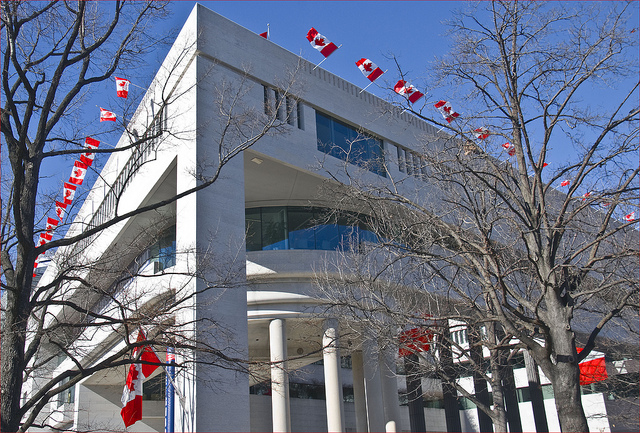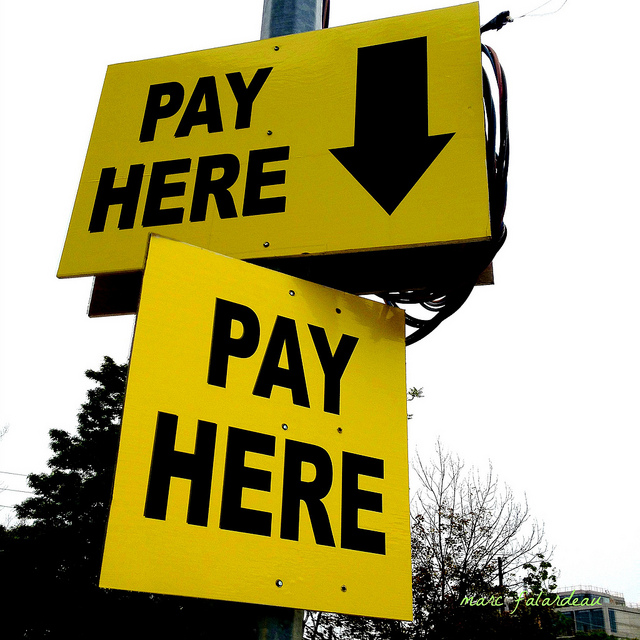Paying for Foreign Transaction Fees? You’re paying too much
Updated for 2024!
We usually talk about travel insurance in these posts, however today we’re going to paddle into slightly different waters. The good news is that it’s all along the same lines. You see, not only should you choose the right travel insurance when you travel, you should also take along the right credit card.
There’s a really thorough and good review of the best no transaction fee credit cards in Canada here, and a look at the best travel rewards cards in Canada here.

Credit cards versus traditional payments while travelling
Choosing the right credit card for your travels can save you a lot of money over the course of the year, especially if you’re travelling a lot or even if you have a tendency to buy things online from US based companies like Amazon.com or from any site not charging in Canadian dollars.
Like a lot of you, we tend to use our credit cards for nearly everything as we travel. Carrying large amounts of cash is rarely a safe option and traveller’s cheques are pretty much extinct, not to mention a pain to use.
By paying with your credit card as you travel, all you need is a single piece of plastic and a four digit PIN code. Pretty much every card includes fraud protection these days and if your card is lost or stolen, cancelling it should only take a simple phone call.
Not only that, but unknown to most, credit cards have some of the best foreign exchange rates around. Credit card exchange rates are also set every day, so you get the going rate at the time of use, rather than hoping that the exchange rate remains stable for the entirety of your trip. I like to think of it as reverse dollar-cost averaging, where you can spread the cost of fluctuating currencies to maximize your savings.
Hidden fees
The biggest problem with using your credit card is that chances are you’re paying a hidden foreign transaction fee.
Separate from the exchange rate, this fee is a way for banks and card issuers to make a few cents or, more likely, a few dollars more on each transaction and are often hidden from you, the purchaser. With an average foreign transaction fee of 2.5% to 3%, you could easily be paying hundreds of dollars per trip in surplus fees.
Don’t believe me? Check your credit card statement and then see how it compares against your store receipt. By comparing your receipt against XE.com‘s rate for that day, you’ll discover what the foreign exchange rate was (set by Visa, MasterCard and the others major cards) and also the bank’s foreign exchange fee.
Since XE uses mid-market rates (midpoint between Buy and Sell rates), you can also find out exactly what Visa or MasterCard charged for that date with those two links (they set an amount once daily).
To calculate your foreign transaction fees, put the transaction date, the transaction amount and the foreign currency from your receipt in one of the above calculators and 0% in the bank fee and choose CDN currency in the card currency dropdown. This is what you would have paid if you had zero foreign transaction fees.
Now open your calculator, type in the amount that your credit card shows and minus what the above shows on your credit card bill and what’s left over is most probably your bank’s foreign exchange fee. You can divide the lower amount by the higher amount to get your percentage or just put 2.5 or 3 in the credit card calculator and rerun it to see if it now matches your credit card statement.
Tip! Having trouble calculating your bank’s foreign exchange fee? No problem! Just call your bank or card issuer and ask what their foreign transaction fee is for your card.
Here’s the bad news. In Canada, nearly every bank charges a foreign transaction fee, however in the US and other countries you’ll find a large collection of credit cards not charging any foreign transaction fee at all.
Canadian Credit Cards with no foreign transaction fees
*Note for 2018: Chase bank has ended both the Amazon.ca Rewards card and the Marriott Rewards card. We kept them here for historical data.
Currently, there are only six credit cards in Canada that we could find (and trust me, we searched high and low!) that don’t charge this foreign transaction fee.
With the Scotiabank Passport™ Visa Infinite Card, there’s no extra fee whether you make foreign currency purchases online or outside of Canada. There’s an annual fee of $139.00, but you get some interesting perks with it like 25 day travel insurance and free priority pass lounge access.
The second is the CIBC Air Canada® AC Conversion™ Card. What’s interesting about this card is that it’s a prepaid card so you need to have funds in the account to work it however there’s zero foreign transaction fees in any of the 10 supported currencies. You manage the card, including adding funds, and checking your balance, with an app that’s available on Google Play and iTunes.
The third is the Home Trust Preferred Visa. This card has a 0% foreign currency conversion fee. That means that there’s no foreign currency fee on either cash advances or foreign purchases. However note that cash advances from an ATM abroad charge 1.5%.
The fourth Canadian credit card with no foreign transaction fee is the HSBC Premier World Elite® Mastercard®. There’s an annual fee of $149 however right now they offer the first year for free and give you some nice bonus perks as well including free points, lounge access, travel benefits and 3% back on travel purchases and 1.5% back on all other purchases.
The final two cards are the Rogers Platinum Mastercard and the Fido Mastercard. Both earn you 3% cashback on foreign transactions (you still pay the 2.5% fee though so really it’s 0.5% back) and they both give you 1.25% back on everything else. Besides for being able to redeem points on more things, both the Rogers card and the Fido card have no annual fee. Though both cards are similar, you have to weigh your options if you’re choosing one of the two cards and preferably get the card that matches your cell provider to maximize your savings.
(No longer available.) The first is the Amazon.ca Rewards Visa Card from Chase. Yup, if you love buying things from Amazon.ca then this might be the card for you. Not only do they not charge any foreign transaction fee, but you get $20 to spend on Amazon.ca purchases when you’re approved. There’s no annual fee and you can earn 2% cash back on Amazon.ca purchases and 1% nearly everywhere else.
(No longer available.) The second is the Marriott Rewards Premier Visa Card from Chase. With your first year fee waived ($120 thereafter), you earn 30,000 bonus points (worth four nights free in a category 1 hotel) with your first purchase, plus you get a free nights stay every year on your renewal date. Not too bad when you factor in that you’re also saving 2.5 to 3% by not paying any foreign transaction fees.
A few extra notes on Canadian foreign transaction fees
So that’s it. If you’re looking to travel and want to save a few dollars or want to limit how much your bank gouges you then it’s worth looking into one of these cards.
Of course, if you’re getting amazing rewards with your current card and have extra reasons for using it as you travel (for instance, you’re getting free rental car collision insurance or something similar) then you might want to keep using your current card for those purchases or rentals while you’re away.
That said, if you’re using a different cashback card hoping to rack in the money, the odds are that it’s not offsetting your foreign transaction fee your bank or the card issuer is charging and at the end of the day you’re still lining your banks pockets and not your own.





The new Bank of NS Mastercard (previously Sears card) don’t charge a foreign transaction fee either.
Hi Janet, I’ve scoured ScotiaBank’s credit card site and can find no mention of any card that doesn’t charge this fee and also scoured all the typical Canadian credit card reward sites and see no mention of it there as well. Can you tell me which exact card you believe it to be so i can verify it and update this post? Thanks!
The ScotiaBank credit card is now added. It wasn’t available previously. Thanks for the heads up Janet!
Both Amazon Visa and Marriot are no longer available.
The only Canadian true real transaction fee-free card left seems to be the new(er) Home Trust Preferred Visa card.
And by no means is it as good as the Amazon Visa (Chase) card was.
But it is a free card, albeit with some user-unfriendly restrictions.